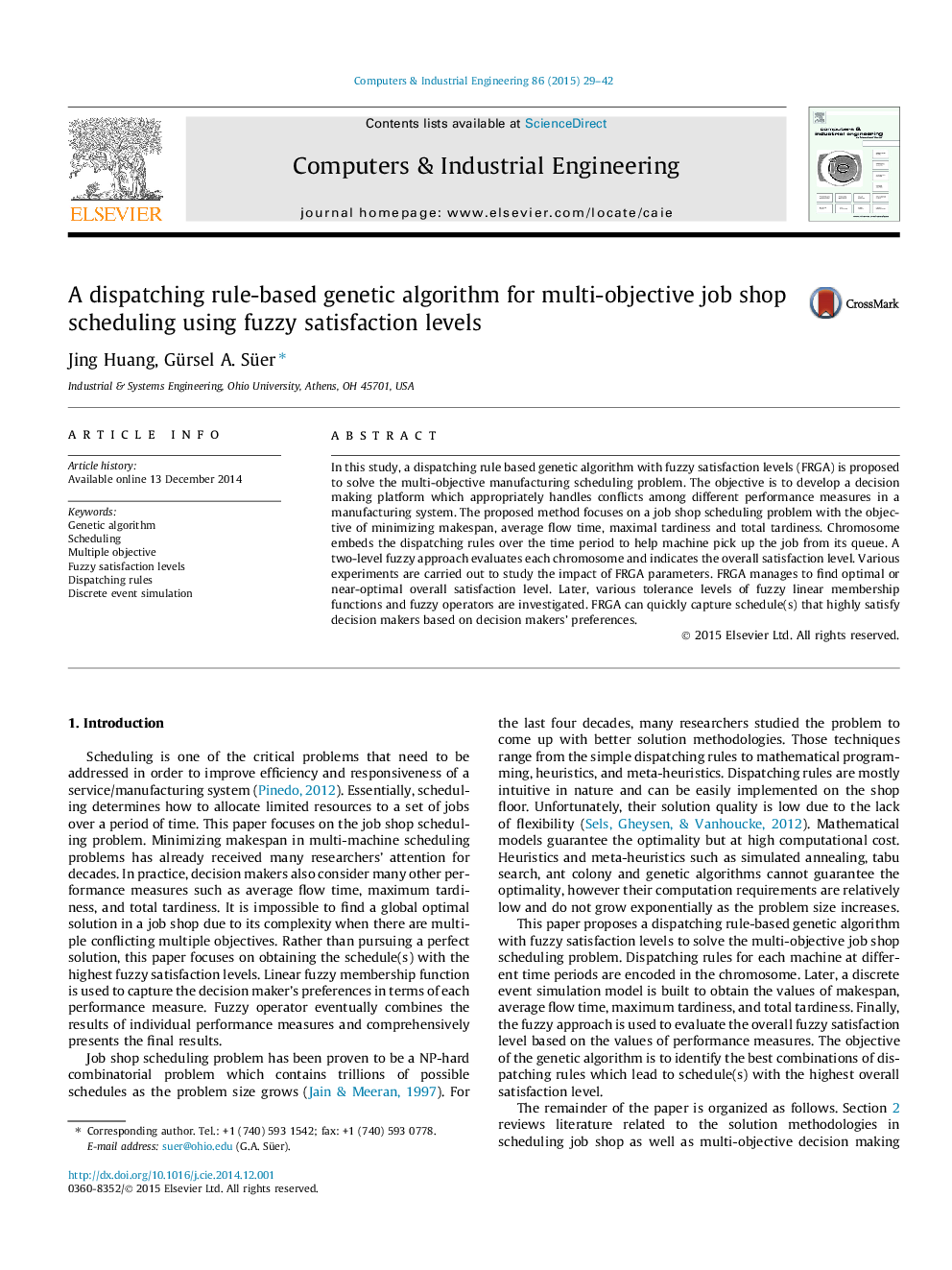| Article ID | Journal | Published Year | Pages | File Type |
|---|---|---|---|---|
| 1133523 | Computers & Industrial Engineering | 2015 | 14 Pages |
•This paper focuses on multi-objective job shop scheduling problem.•Dispatching rules, discrete simulation, genetic algorithm and fuzzy set are used.•The proposed approach is able to find optimal or near-optimal solutions.•Decision makers’ preferences are defined by fuzzy membership functions and operators.•Rule-based dispatching rules are used.
In this study, a dispatching rule based genetic algorithm with fuzzy satisfaction levels (FRGA) is proposed to solve the multi-objective manufacturing scheduling problem. The objective is to develop a decision making platform which appropriately handles conflicts among different performance measures in a manufacturing system. The proposed method focuses on a job shop scheduling problem with the objective of minimizing makespan, average flow time, maximal tardiness and total tardiness. Chromosome embeds the dispatching rules over the time period to help machine pick up the job from its queue. A two-level fuzzy approach evaluates each chromosome and indicates the overall satisfaction level. Various experiments are carried out to study the impact of FRGA parameters. FRGA manages to find optimal or near-optimal overall satisfaction level. Later, various tolerance levels of fuzzy linear membership functions and fuzzy operators are investigated. FRGA can quickly capture schedule(s) that highly satisfy decision makers based on decision makers’ preferences.
